Last Friday I visited a community called Finetown which is on the outskirts of Johannesburg South, an underdeveloped and underserviced township which is part of a town called Ennerdale. If you live in Gauteng you’ve probably passed it many times on your way in and out of the province, on cross-country trips for work or going on holiday, without ever being cognisant of it.
Most people, however, will have only heard about Finetown for the first time in 2022 when seven people were killed in a mass shooting or when four armed gunmen in a car attempted to rob a street vendor and when he and residents retaliated, they drove off and brazenly returned on foot, fatally shooting the vendor, his sister and four other people.
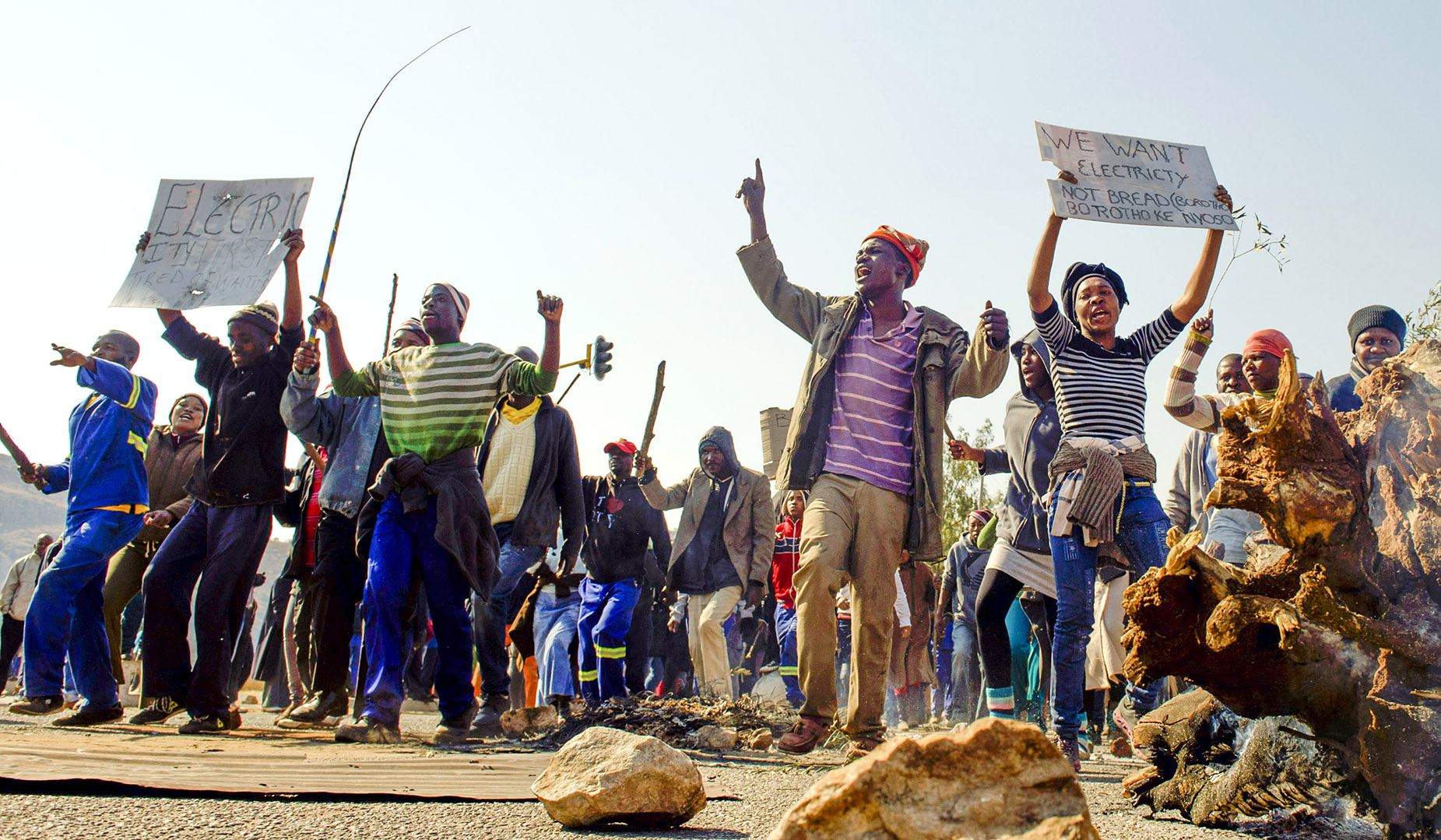 Residents protest against power outages in Mamelodi in July 2014. (Photo: Gallo Images / Foto24 / Deaan Vivier)
Residents protest against power outages in Mamelodi in July 2014. (Photo: Gallo Images / Foto24 / Deaan Vivier)
Violence is not uncommon in underdeveloped communities where people often express their frustrations in this manner. The community does not have schools or a police station, has been without electricity for the past four years, it has streets that are hard gravel and only recently had a clinic built which has yet to open.
Finetown reminded me that while we are losing our minds about four-hour rolling blackouts there are people who have not had electricity for years.
Now Chapter 7 of our Constitution states that the objects of local government are:
- to provide democratic and accountable government for local communities;
- to ensure the provision of services to communities in a sustainable manner;
- to promote social and economic development;
- to promote a safe and healthy environment.
It also goes on to say that a municipality must “structure and manage its administration, and budgeting and planning processes to give priority to the basic needs of the community, and to promote the social and economic development of the community”. This is something that the municipality of Ennerdale is failing to do for Finetown.
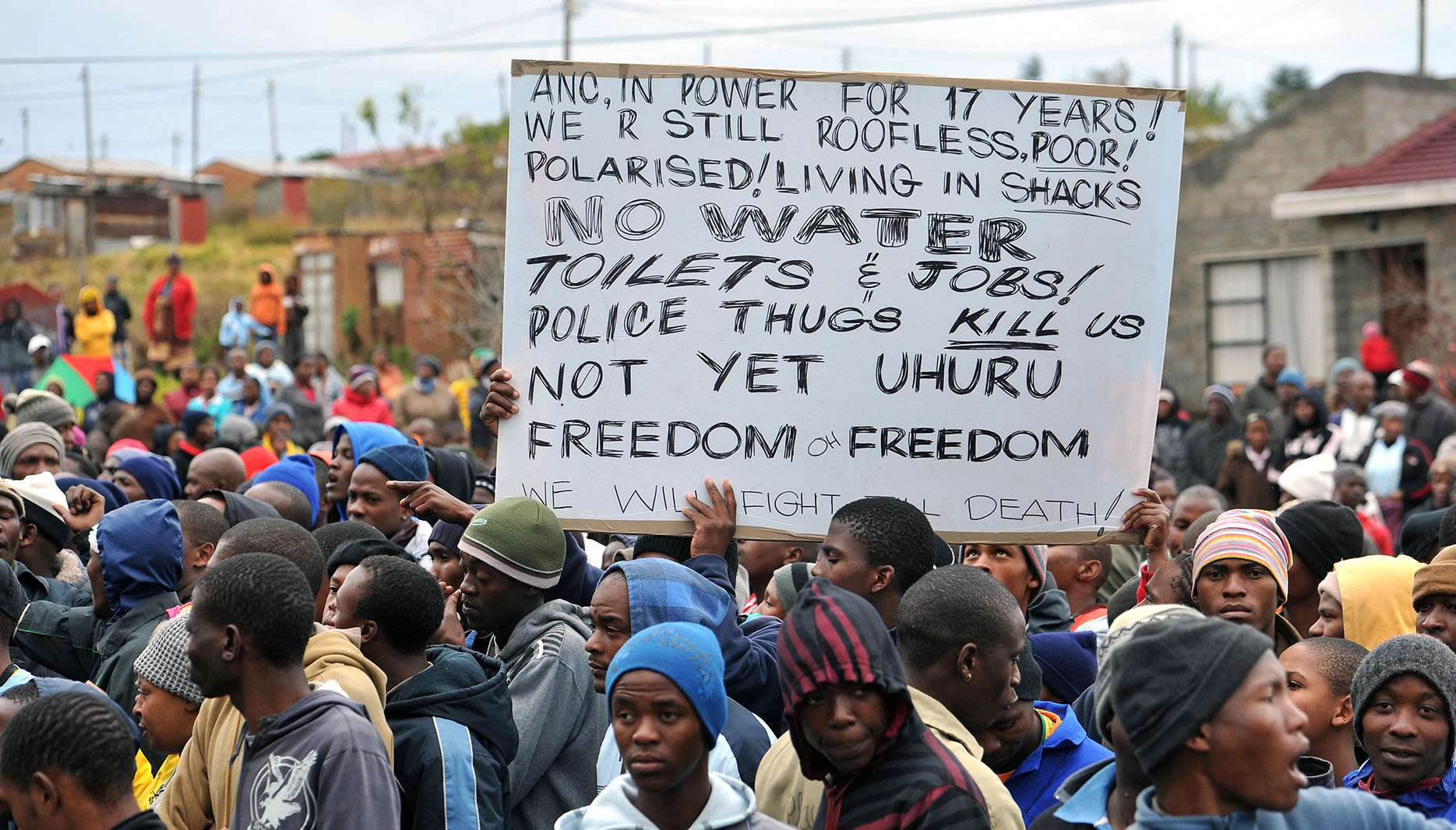 Protesters in Ficksburg on 13 May 2011. (Photo: Gallo Images / Foto24 / Felix Dlangamandla)
Protesters in Ficksburg on 13 May 2011. (Photo: Gallo Images / Foto24 / Felix Dlangamandla)
Access to basic services and employment opportunities has at its heart the pursuit of human dignity and a better quality of life. However, it seems that the further you are from the centre, the less people care about providing basic services because you are invisibilised.
Read more in Daily Maverick: A serious proposal to overcome child hunger… but will we choose it?
Finetown reminded me that while others are willing to go to war for potholes, there are some among us who do not even have roads, that while we are losing our minds about four-hour rolling blackouts there are people who have not had electricity for years. In fact, while listening to Radio 702 the other day when Pretoria East was without electricity for 48 hours because of collapsed pylons, a caller voiced their frustration to the effect that, while the suburbs of Pretoria East received priority with their power restoration, those in the township of Mamelodi were still without electricity and were seemingly always the last to have their power restored.
Casualties of a dysfunctional society
What is worth noting is that while we lament the country’s downward spiral, denying people their constitutionally guaranteed basic services locks them into a cycle of poverty, desperation and inequality that is damaging for the country as a whole. These are people who are the casualties of a dysfunctional society and uncaring political system, that entrenches itself by robbing people of their rights.
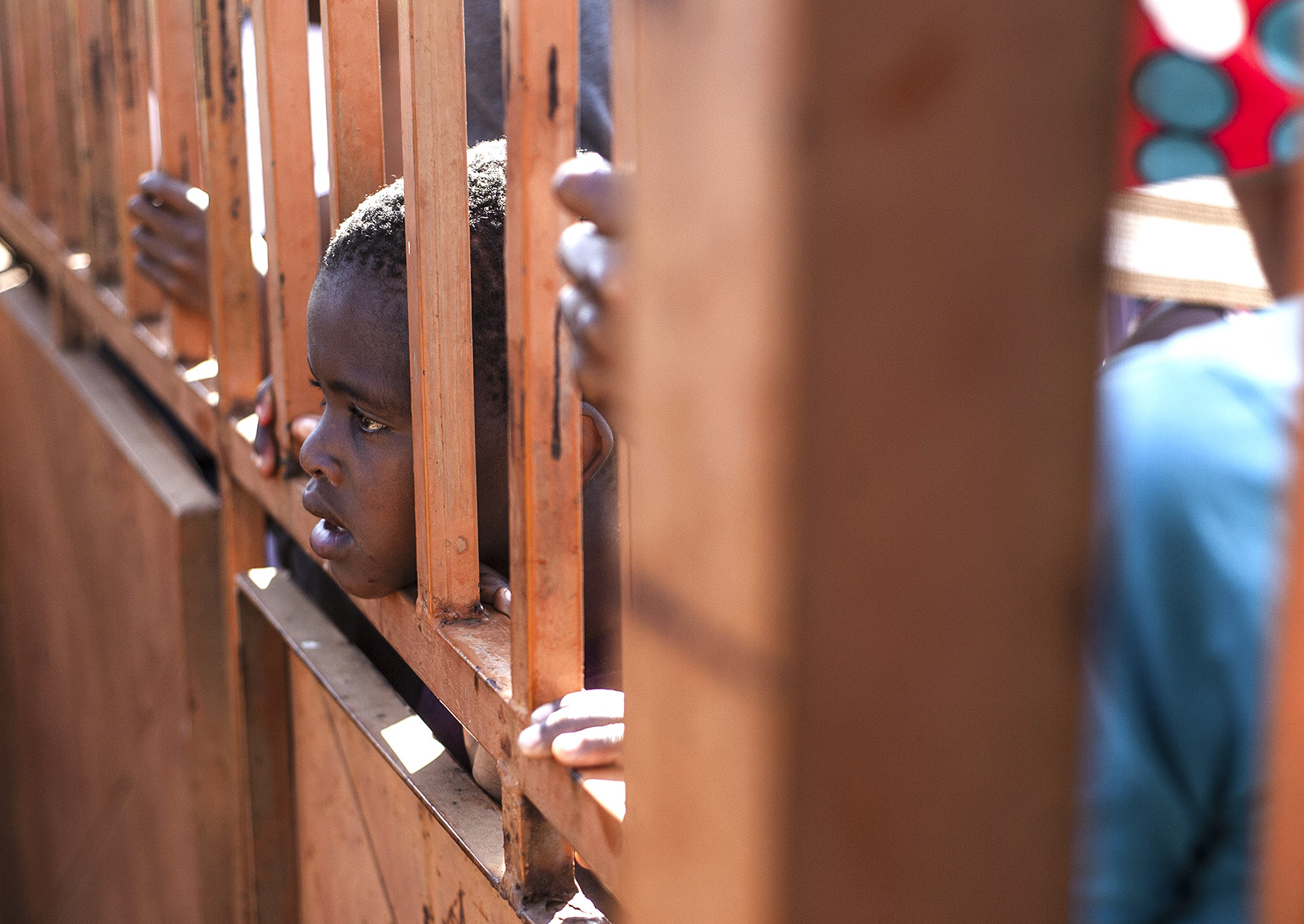 A child peers through a gate as residents queue for food aid at the Zenzele Counselling Project in Finetown, south of Johannesburg, on 7 May 2020. (Photo: Waldo Swiegers / Bloomberg via Getty Images)
A child peers through a gate as residents queue for food aid at the Zenzele Counselling Project in Finetown, south of Johannesburg, on 7 May 2020. (Photo: Waldo Swiegers / Bloomberg via Getty Images)
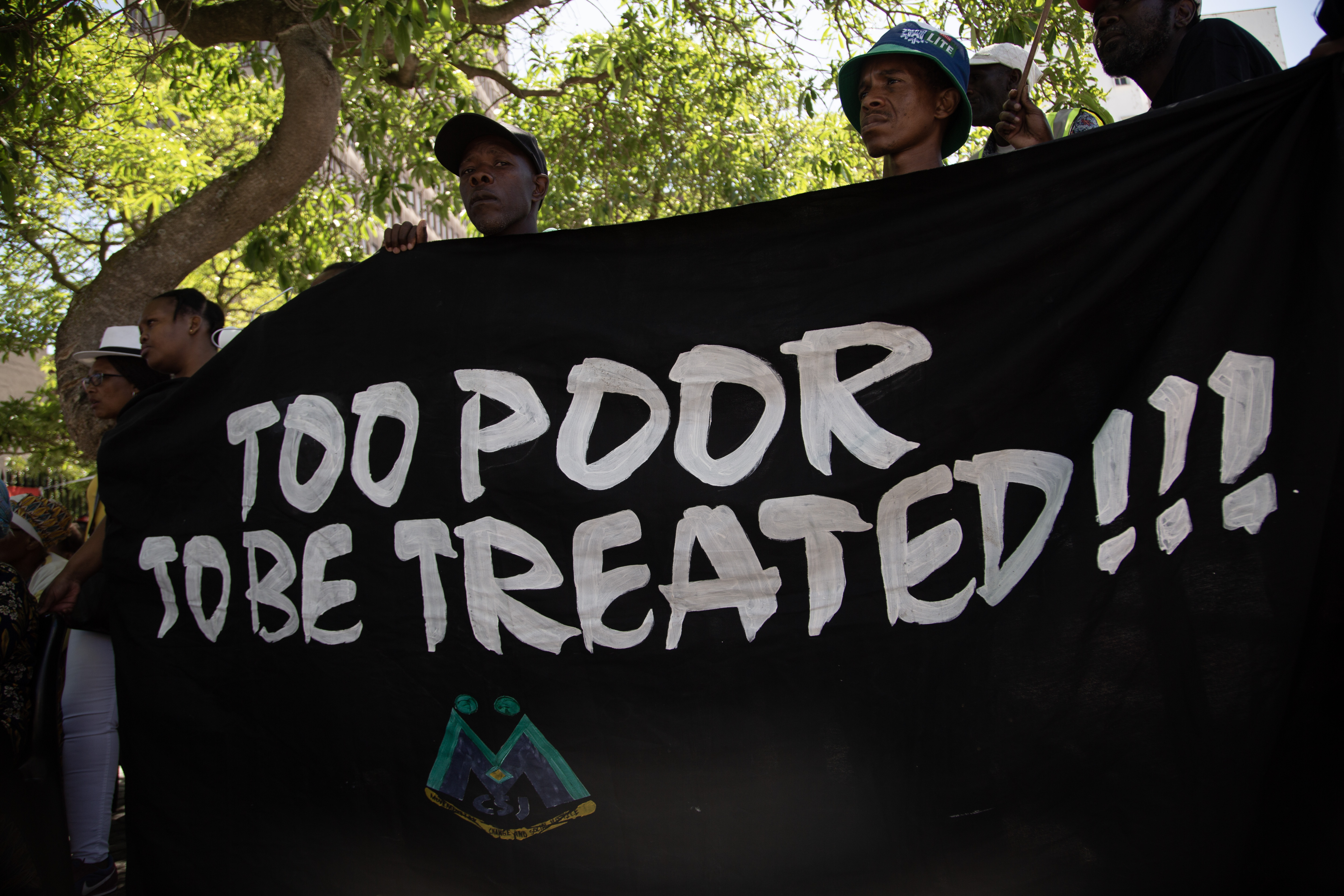 A small group of protesters outside Parliament before to the delivery of the Medium Term Budget Speech on 26 October 2022. Organisations from across Cape Town gathered to protest against the high cost of living, lack of service delivery, gender-based violence and unemployment. (Photo: Leila Dougan)
A small group of protesters outside Parliament before to the delivery of the Medium Term Budget Speech on 26 October 2022. Organisations from across Cape Town gathered to protest against the high cost of living, lack of service delivery, gender-based violence and unemployment. (Photo: Leila Dougan)
In a recent article, Professor Bheki Mngomezulu, the director of the Centre for the Advancement of Non-Racialism and Democracy at the Nelson Mandela University, rightly said:
“The provision of services by government officials to the people is not a matter of choice. Instead, it is a mandatory exercise. Whenever people are deprived of these services, their human rights are violated. Importantly, failure to deliver services to the people does not only amount to dereliction of duty, but it is also in contravention of the Constitution of the country.”
Last week, on 13 April, it was the 12th anniversary of the killing of Andries Tatane by the South African Police Service during a service delivery protest in Ficksburg. Tatane, who was fighting for the right of his community to have water, has since become a symbol of service delivery activism, but also of how service delivery still needs to be improved. Finetown and many other underdeveloped townships around the country continue to have service delivery protests, but is anybody listening? Does anybody care?
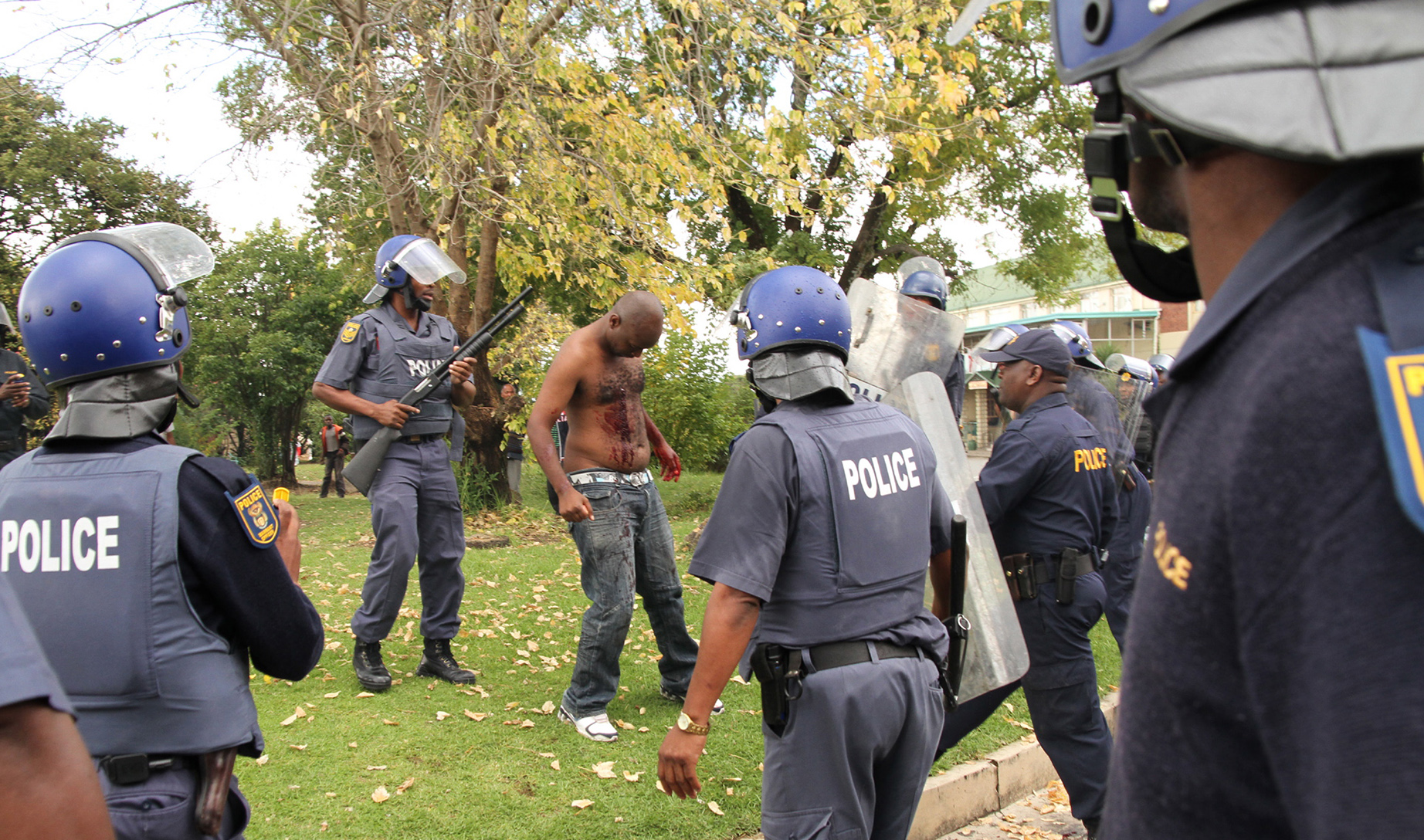 Andries Tatane after he had been shot by the police with rubber bullets in Ficksburg on 13 April 2011. He died on the way to hospital. (Photo: Gallo Images / Beeld / Willem van der Berg)
Andries Tatane after he had been shot by the police with rubber bullets in Ficksburg on 13 April 2011. He died on the way to hospital. (Photo: Gallo Images / Beeld / Willem van der Berg)
On 17 December 2010, just a year before Tatane was killed, Mohamed Bouazizi, who sold fruit and vegetables, set himself alight in protest against police harassment after having failed to get help from the local authority. According to his cousin, he had told him a week before: “I’m so fed up and tired… I can’t breathe anymore.”
Read more in Daily Maverick: Daily Maverick’s International Person of the Year: Mohamed Bouazizi – a vegetable seller who changed the world
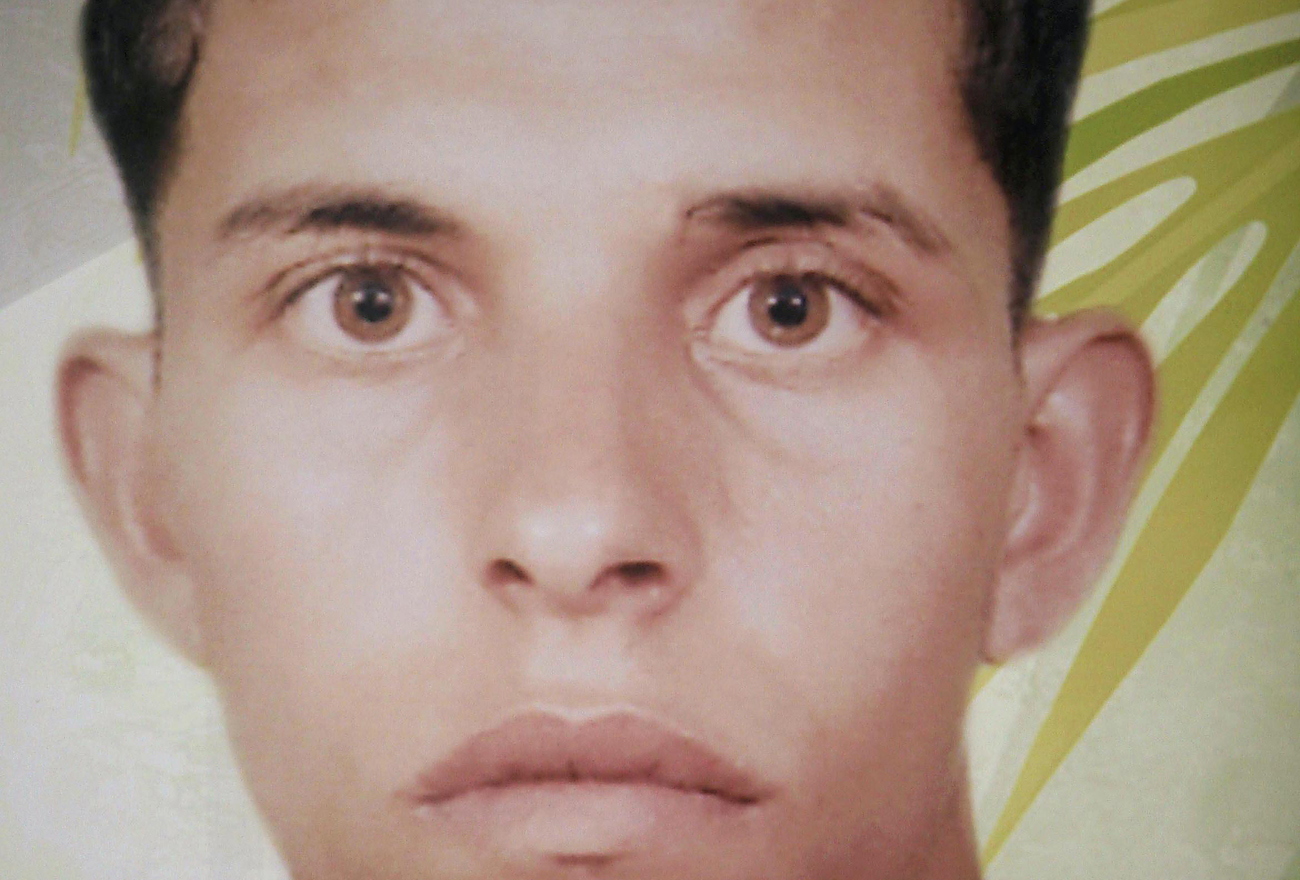 Mohamed Bouazizi's picture on a poster in his family's home in the Tunisian town of Sidi Bouzid on 6 February 2011. (Reuters / Handout)
Mohamed Bouazizi's picture on a poster in his family's home in the Tunisian town of Sidi Bouzid on 6 February 2011. (Reuters / Handout)
The gesture sparked protests against the rising cost of living and authoritarian government in Tunisia and spread across the Arab world.
Do we need another person to set themselves on fire before change happens through collective action and solidarity? Will public officials then finally take the contents of the Constitution and the dignity of the downtrodden seriously? DM/MC




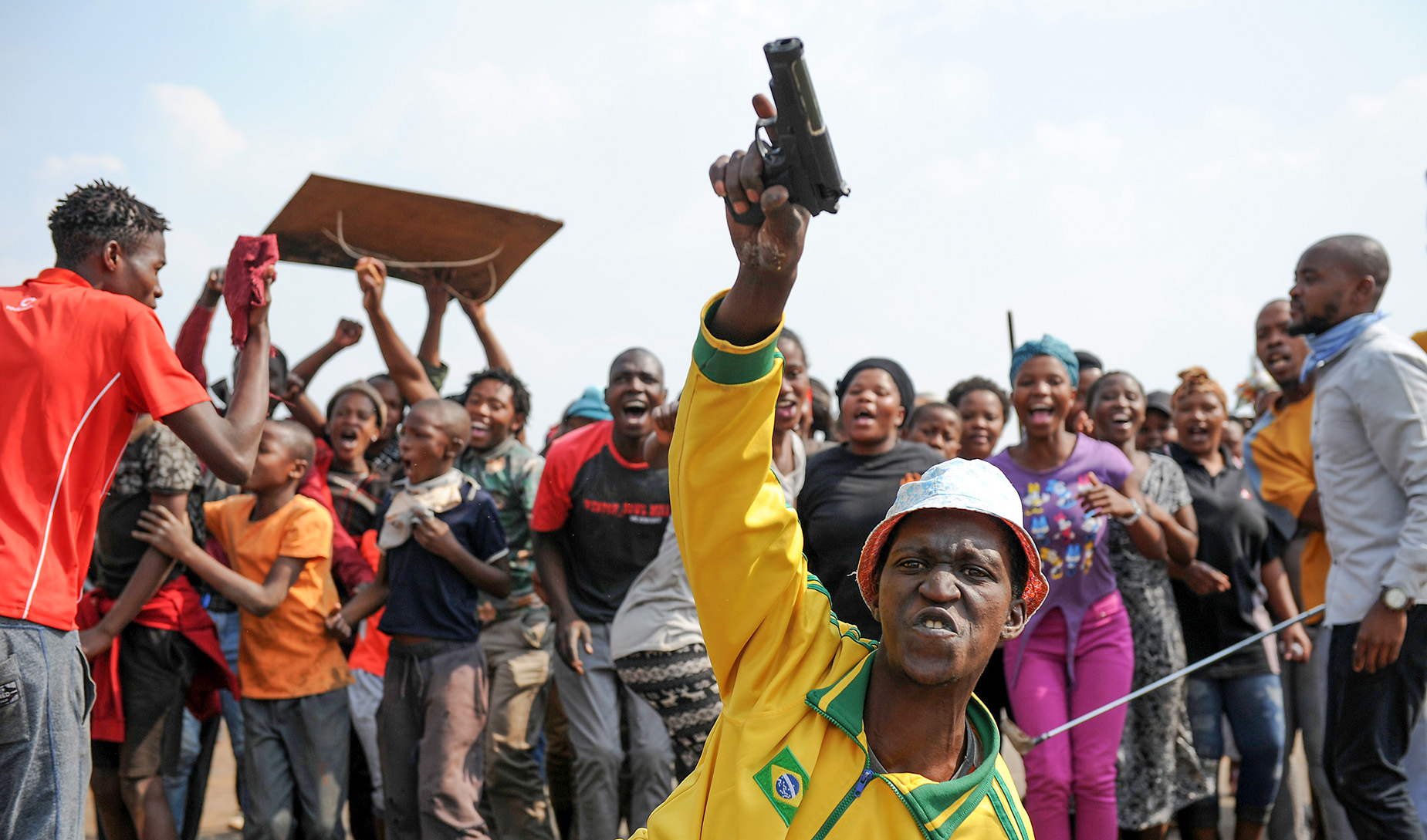 A portrait of Mohamed Bouazizi is seen on a poster in this handout photo released by Bouazizi's family at their home in the Tunisian town of Sidi Bouzid, 265 km (165 miles) south of Tunis February 6, 2011. Bouazizi set himself on fire on December 17, 2010 in the central town of Sidi Bouzid in protest at confiscation by police of his vegetable cart. The 26-year-old later died of his burns on January 4, 2011. His act of self-immolation ignited the protests that led to the downfall of the government and ousted President Zine al-Abidine Ben Ali. Picture of Mohamed Bouazizi is seen in a poster behind Mannoubia Bouazizi. Picture taken February 6, 2011 (REUTERS/Handout (TUNISIA - Tags: POLITICS CIVIL UNREST) FOR EDITORIAL USE ONLY. NOT FOR SALE FOR MARKETING OR ADVERTISING CAMPAIGNS)
A portrait of Mohamed Bouazizi is seen on a poster in this handout photo released by Bouazizi's family at their home in the Tunisian town of Sidi Bouzid, 265 km (165 miles) south of Tunis February 6, 2011. Bouazizi set himself on fire on December 17, 2010 in the central town of Sidi Bouzid in protest at confiscation by police of his vegetable cart. The 26-year-old later died of his burns on January 4, 2011. His act of self-immolation ignited the protests that led to the downfall of the government and ousted President Zine al-Abidine Ben Ali. Picture of Mohamed Bouazizi is seen in a poster behind Mannoubia Bouazizi. Picture taken February 6, 2011 (REUTERS/Handout (TUNISIA - Tags: POLITICS CIVIL UNREST) FOR EDITORIAL USE ONLY. NOT FOR SALE FOR MARKETING OR ADVERTISING CAMPAIGNS) 